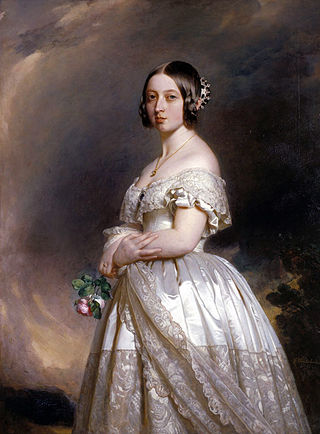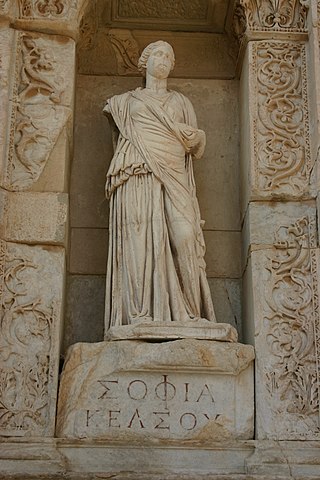Notes
- ↑ The Treasury of North American Baby Names by Gill Davies, p. 88, ISBN 1903025125
- ↑ Behind the Name
| Gender | Female |
|---|---|
| Origin | |
| Word/name | Greece |
| Meaning | bright, shining light |
| Other names | |
| Related names | Ellen, Helen, Helena, Helene |
Elena is a popular female given name of Greek origin. The name means "shining light". Nicknames of the name Elena are Lena, Lennie, Ella, Ellie, Nellie, or Nena (less common). [1]
Other common variants are Alena (German, Czech, Russian, Belarusian, Serbian, Croatian); Alenka (Slovenian); Alyona (Russian); Elene (Georgian); Helen (English); Hélène (French); Helena (Latin, Polish); Eliana (Portuguese); Eline (Dutch, Norwegian, Sranan Tongo); Ileana (Romanian, Italian, Spanish); Ilona (Hungarian, Finnish, Latvian); Olena (Ukrainian); Leena (Finnish); and Elena/Yelena/Jelena (Russian, Serbian, Croatian). [2]
Alexandra is a female given name of Greek origin. It is the first attested form of its variants, including Alexander. Etymologically, the name is a compound of the Greek verb ἀλέξειν and ἀνήρ. Thus it may be roughly translated as "defender of man" or "protector of man". The name Alexandra was one of the epithets given to the Greek goddess Hera and as such is usually taken to mean "one who comes to save warriors". The earliest attested form of the name is the Mycenaean Greek 𐀀𐀩𐀏𐀭𐀅𐀨, written in the Linear B syllabic script. Alexandra and its masculine equivalent, Alexander, are both common names in Greece as well as countries where Germanic, Romance, and Slavic languages are spoken.
Julia is a usually feminine given name. It is a Latinate feminine form of the name Julio and Julius. The given name Julia had been in use throughout Late Antiquity but became rare during the Middle Ages, and was revived only with the Italian Renaissance. It became common in the English-speaking world only in the 18th century. Today, it is frequently used throughout the world.
Natalia is a female given name with the original Late Latin meaning of "Christmas Day".

Victoria is a feminine first name. It is also used as a family name.
Danielle is a modern French female variant of the male name Daniel, meaning "God is my judge" in the Hebrew language.

Michaela is a female given name. It is a female form of the Hebrew name Michael (מִיכָאֵל), which means "Who is like God".
Xenia is a female given name. The below sections list notable people with one of the variants of this given name.
Olga is a female given name of Slavic origins. It is the equivalent of Helga, and derived from the Old Norse adjective heilagr. The name was brought to Russia in the 9th century, by the Scandinavian settlers who founded Kievan Rus'.

Sophia, also spelled Sofia, is a feminine given name, from Greek Σοφία, Sophía, "Wisdom". Other forms include Sophie, Sophy, and Sofie. The given name is first recorded in the beginning of the 4th century. It is a common female name in the Eastern Orthodox countries. It became very popular in the West beginning in the later 1990s and became one of the most popularly given girls' names in the Western world in the first decades of the 21st century.

Tatiana is a female name of Sabine-Roman origin that became widespread in Eastern Europe.

Diana is a feminine given name of Latin and Greek origins, referring to the Roman goddess Diana. It came into use in the Anglosphere in the 1600s by classically educated parents as an English language version of the French version of the name, Diane.
Adriana, also spelled Adrianna, is a Latin name and feminine form of Adrian. It originates from present day Italy and Spain.
Irina or Iryna is a feminine given name of Ancient Greek origin, commonly borne by followers of the Eastern Orthodox Church. It is derived from Eirene, an ancient Greek goddess, personification of peace. It is mostly used in countries within the Commonwealth of Independent States and the Balkans.

Anna is a feminine given name, the Latin form of the Greek: Ἄννα and the Hebrew name Hannah, meaning "favour" or "grace".

Daria or Darya is a traditional Russian female name, also used in some other predominantly Eastern Orthodox countries in Europe.
Vera is a female given name of Slavic origin, and by folk etymology it has also been explained as Latin vera meaning "true". In Slavic languages, Vera means faith. The name Vera has been used in the English speaking world since the 19th century and was popular in the early 20th century. In Turkish Vera means piety.
Catalina is a feminine given name. It is a Spanish form of a variation of the name Katherine. Catalina is an equivalent to Katherine or Catherine in English, Αικατερίνη (Ekaterini) and Κατερίνα (Katerina) in Greek, Екатерина (Yekaterina) in Russian and Ukrainian, Caterina in Catalan and Italian, Cătălina in Romanian, Catherine in French, Katarzyna in Polish, and Catarina in Portuguese and Galician.
Margarita is a feminine given name in Latin and Eastern European languages. In Latin it came from the Greek word margaritari (μαργαριτάρι), meaning pearl, which was borrowed from the Persians.
Christina or Cristina is a feminine given name. It is a simplified form of the Latin Christiana, and a feminine form of Christianus or a Latinized form of the Middle English Christin 'Christian'. Short forms include Chris and Tina. The name is ultimately derived from the original Greek form of the name, Χριστίνα.

Veronica is a female given name, a Latin alteration of the Greek name Berenice (Βερενίκη), which in turn is derived from the Macedonian form of the Athenian Φερενίκη, Phereníkē, or Φερονίκη, Pheroníkē, from φέρειν, phérein, to bring, and νίκη, níkê, "victory", i.e. "she who brings victory".